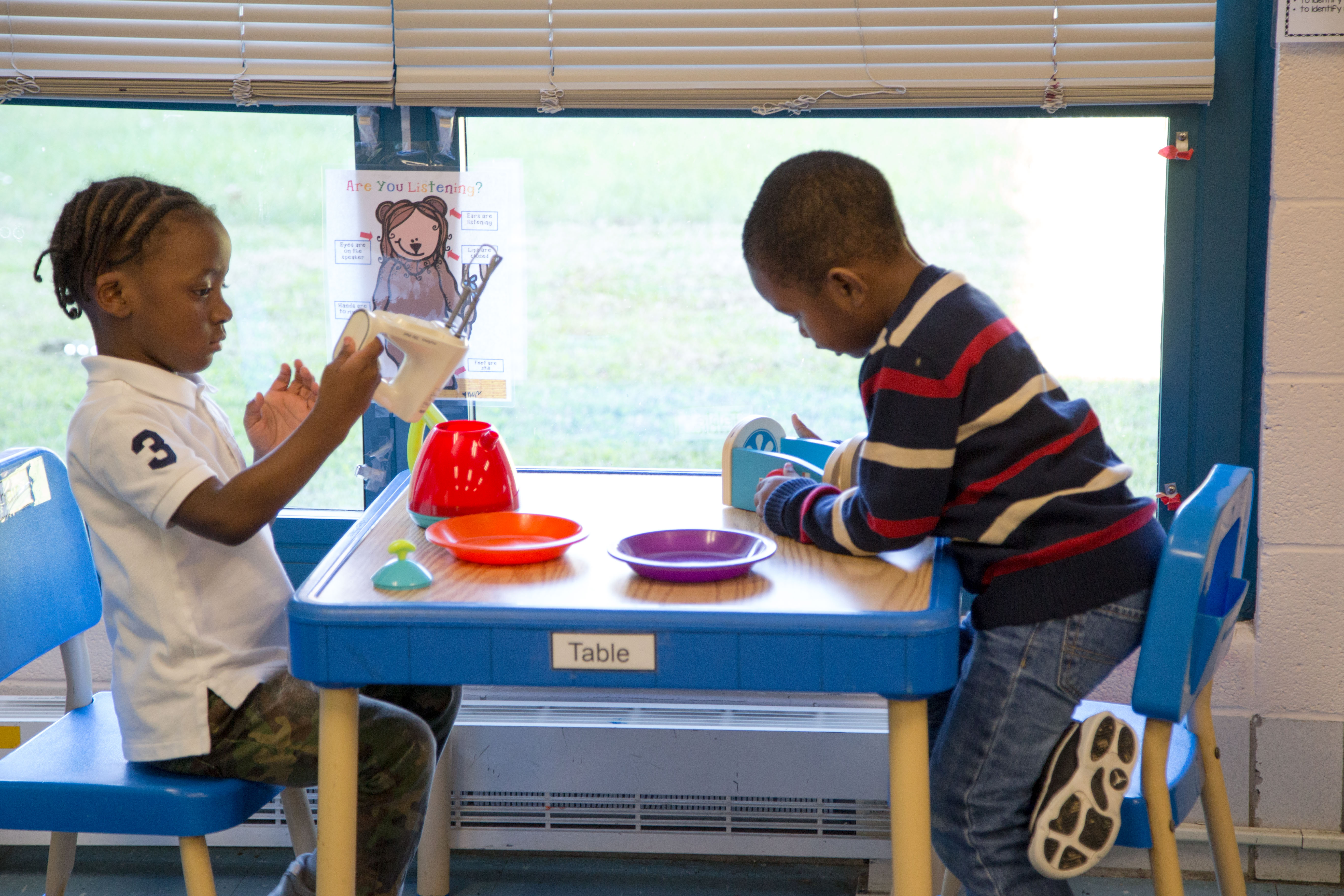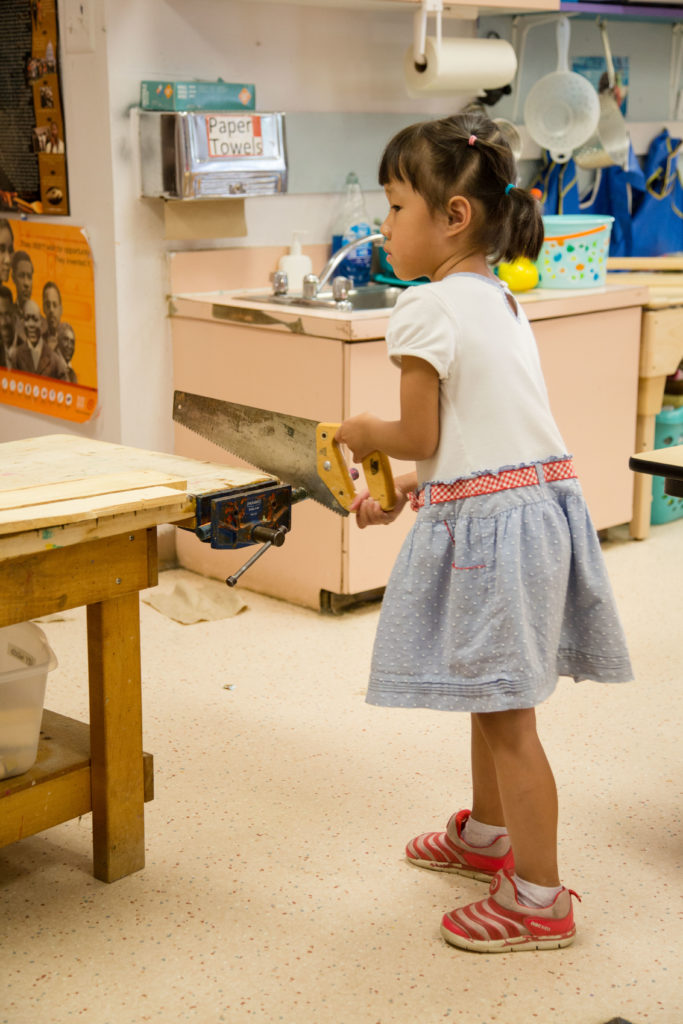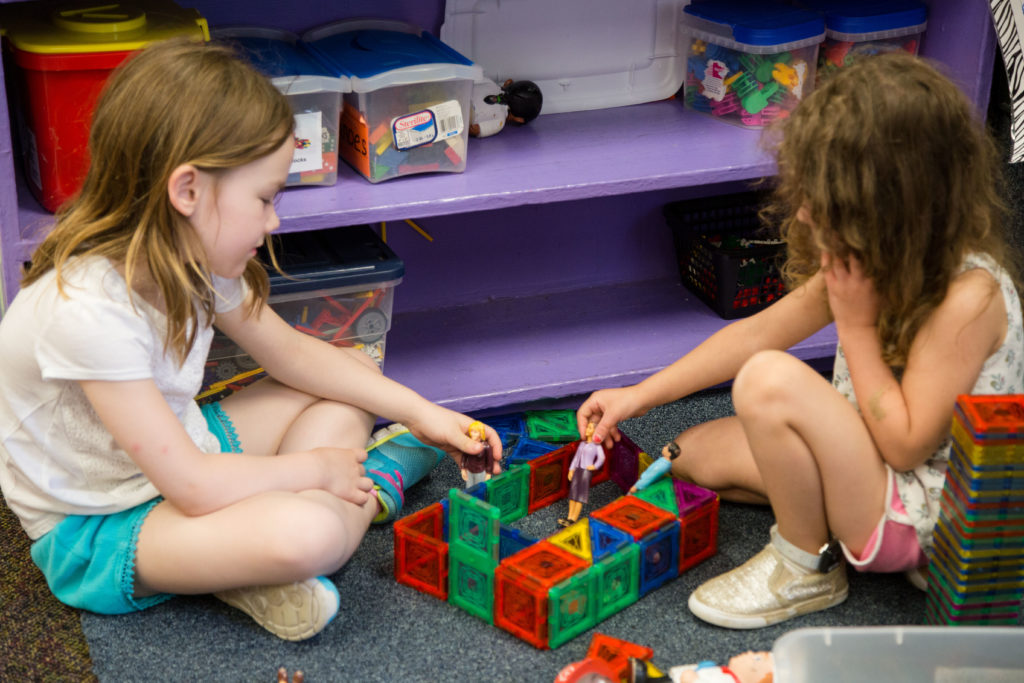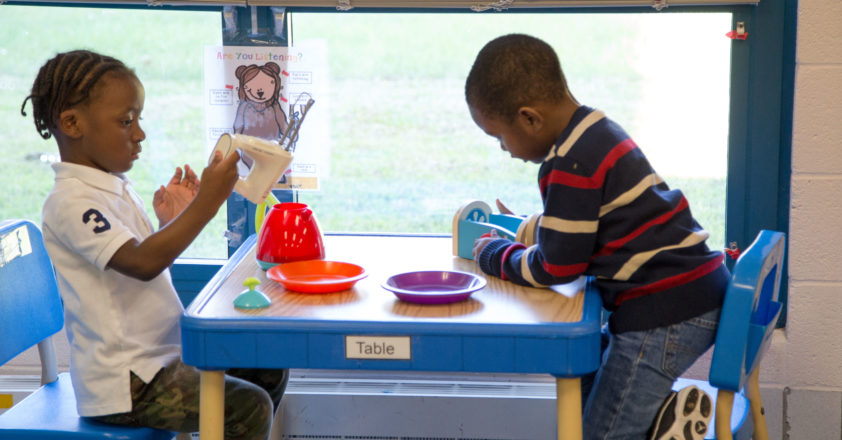Good Old-Fashioned Fun in the Digital Age

Courtesy of Edgewood Elementary School’s Learning Together program in Edgewood, MD
A Child’s Life Before Electronics
Do you remember life before the internet, mobile phones and gaming systems? For one thing, you had to be more creative. Creativity meant wrapping a towel around your neck as a cape and becoming Superman. Then you fought the evil villain and saved whoever was in peril, usually your younger sibling. You also amused yourself and others by pretending to be mommy or daddy as you rolled a plastic grocery cart through the house to shop for groceries.
“But as adults, we become focused on the ‘important’ things in life like keeping our family fed and secure,” said Patty Stine, co-founder of Pure Play Every Day, Inc., a non-profit organization that brings play opportunities to children and communities.
While it’s true that life has changed significantly for parents and families, the importance of imaginative or pretend play remains the same for children. There are plenty of electronic games for today’s children to hold their attention and keep them on the couch for countless hours. The problem, however, is that technology leaves less room for their imagination.
“When we play, we are using our physical, intellectual, emotional and social muscles all simultaneously,” said Stine. “Play is the time when our ‘whole self’ is fully engaged in the task at hand.”

Play between children, their siblings and families is “an opportunity to promote the social and emotional, cognitive, language and self-regulation skills that build executive function and a prosocial brain,” according to a report published by the American Academy of Pediatrics (AAP). Toxic stress can disrupt the development of these essential skills. The report concludes that play is an even more critical part of healthy development for children in these situations.
“During playtime, children are more accepting of things going wrong and finding ways to correct them,” said Stine. “This process helps them develop problem-solving skills, which leads to computational thinking processes.”
The Era of Play Chats
In recent years, organizations have embraced technology to promote the importance of play. Leading the conversation is the US Play Coalition, which hosts a monthly #WePlayChat on Twitter.
“The monthly #WePlayChat hosted by the US Play Coalition reminds us that play is a vital part of our life,” said Stine. “The chats explore the many ways that play is integrated into life around the world.”
The US Play Coalition launched #WePlayChat earlier this year and now engages groups from eight countries on five continents. From Maryland, Stine recently moderated a #WePlayChat that focused on engaging volunteers at play-based events globally.
A Time to Play 
There’s no doubt that play, says the AAP report, serves a critical role in children’s development and learning. During the last decade, technology has changed how children play and what families consider adequate playtime. But with so many groups dedicated to promoting it, good old-fashioned imaginative or pretend play still has a future.
There’s no doubt that play, says the AAP report, serves a critical role in children’s development and learning. During the last decade, technology has changed how children play and what families consider adequate playtime. But with so many groups dedicated to promoting it, good old-fashioned imaginative or pretend play still has a future.
Remember that playtime is the perfect time for families to interact with their children. So the next time you and your children have a little leisure time, put away the laptop and pull out the Play-Doh or Legos. Try building the eighth wonder of the world or whatever masterpiece you and your children can imagine together.
Additional resources:
- Go Ahead and Get Bored: Why is Play so Important?
- Bored Children at Home? Family Challenges Can Keep Them Busy
- Playground Safety Tips
- Best toys for children’s development? Hint: They are not electronic or costly
- The Power of Play: A Pediatric Role in Enhancing Development in Young Children
- Playful Learning Landscapes
- 9 Ways for Parents to Promote Prosocial Behavior in Early Childhood




